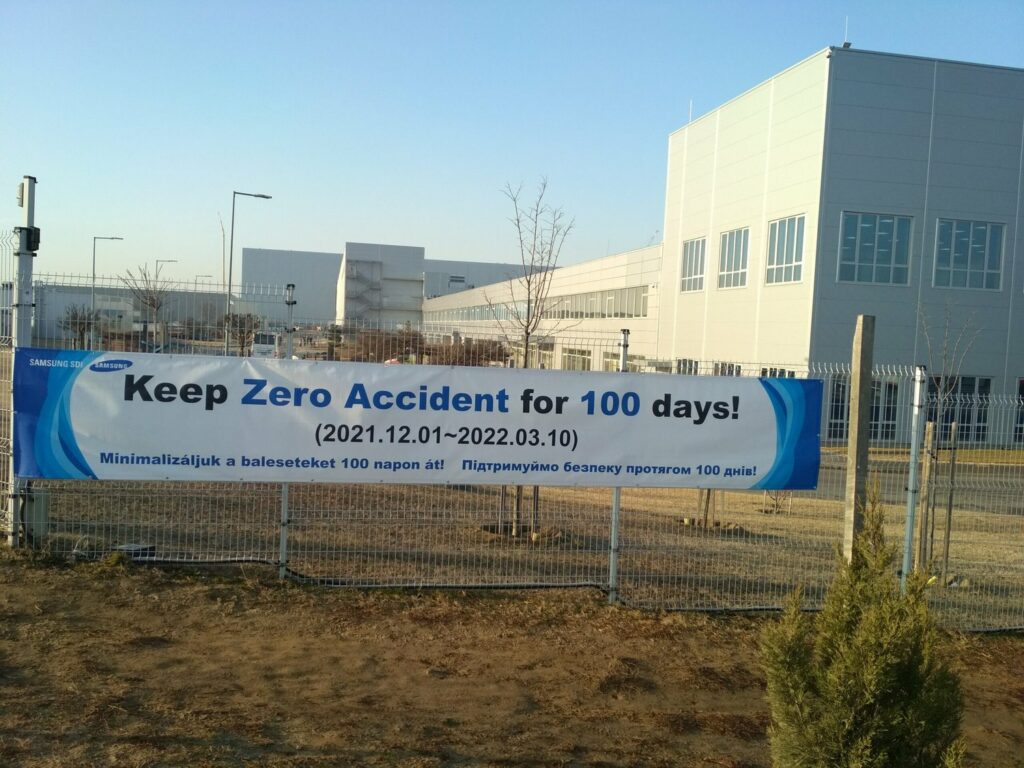The https://english.atlatszo.hu use cookies to track and profile customers such as action tags and pixel tracking on our website to assist our marketing. On our website we use technical, analytical, marketing and preference cookies. These are necessary for our site to work properly and to give us inforamation about how our site is used. See Cookies Policy
“Suddenly the Air Starts to Sparkle” – our story in The Dial about Far Eastern battery makers in Hungary
As South Korean and Chinese battery makers break ground in Hungary, locals face the environmental costs.
Over the past decade, Hungarian Prime Minister Viktor Orbán’s Fidesz government has made it a priority to turn the country into one of Europe’s top producers of batteries for electric vehicles. To do so, the government has declared “special economic zones” for industrial development across the country, in several cases forcibly appropriating privately held agricultural land and utterly transforming previously quiet residential areas into industrial manufacturing hubs. All of this is part of a concerted effort to lure South Korean and Chinese technology giants to build megafactories in Hungary. Currently, there are battery factories in 17 places across the country, many of which represent multibillion-dollar investments in the transition to electric vehicles; Orbán’s government has marshaled approximately 308 billion forints (about $850 million) in public funds toward the development of domestic battery production.

The battery factories have already exacted a high environmental cost upon their surrounding communities. In the cities and towns where they have sprung up, residents have reported chemical contamination of the soil and groundwater, disruptive noise at all hours and the decimation of farmlands. In some towns, mothers have taken to the streets to march against the environmental dangers of the factories, and in others, residents have simply packed up and moved away in order to distance themselves from the pollution. The government maintains that the factories are necessary to meet its goal of net-zero carbon emissions by 2050. Local opposition to the battery factories has recently been gaining momentum as more Hungarian towns find themselves playing host to foreign manufacturing entities.
Since 2021, I have been investigating the social and environmental effects of Hungary’s rural industrialization. My journalism has exposed instances of corruption, fraud, and environmental damage—issue that all too often are overlooked by local media. I have documented the ongoing pollution crisis that has resulted from the surge of battery factories in Hungary, in an attempt to hold those responsible for their construction—and those enriched by their production—to account. (I am also the head of the local environmental association.)
This timeline represents my findings from over a decade of investigating battery production in Hungary and the political forces behind the industrialization, as well as nearly a decade of civil society efforts to push back against the development.
You can read the rest of the story on The Dial.

